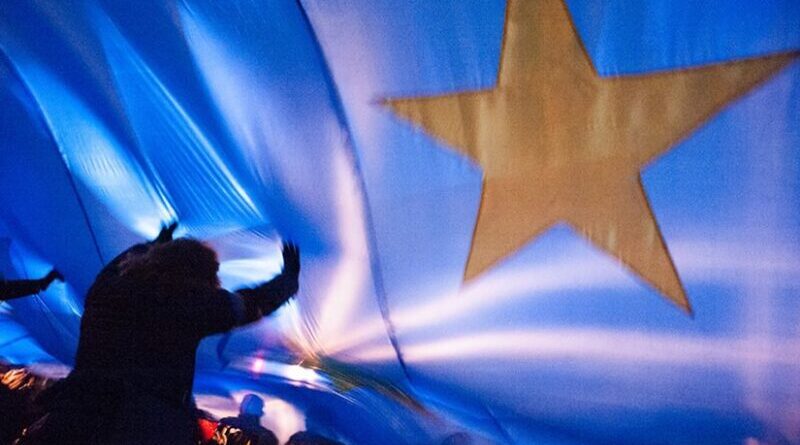Unlike In Ukraine, Russian Maidan Would Likely Be Violent And Destructive, Shevtsova Says – OpEd
By Paul Goble
“Unfortunately, Russia is different from present-day Ukraine in many ways,” Lilia Shevtsova says; and consequently, if a Maidan does occur there, it is likely to be different as well, violent rather than peaceful, destructive rather than constructive, and divisive rather than unifying.
In the course of an interview this week with Artem Dekhtyarenko of “Apostropha,” the Russian analyst outlines the ways in which Ukraine is very different from Russia.
First of all, she says, “Ukraine provides an example of pluralism,” of acceptable differences within the society and the polity.
Second, she continues, “Ukraine has shown the possibility and ability of a Slavic society in a post-communist country to change power by relatively peaceful means.”
And third, Ukraine has displayed the ability to articulate and maintain a civil society based on horizontal rather than vertical ties alone.
In that sense, Shevtsova says, “Ukraine differs from Russia where horizontal ties which began to be formed in the 1990s are very weak, broken or even destroyed altogether.” Thus, she argues, Russia’s problem “is not in the vertical of the powers-that-be but rather in the divisions of society.”
That in turn means that the coming together of society to promote change will be far more difficult in Russia than it has been in Ukraine. Given “the weakness of horizontal ties and the absence of authorities, [a Russian Maidan] could assume not only an explosive but a destructive character.”
“Moreover,” she adds, “Ukraine has the experience of cooperation among various opposition groups as was demonstrated in the Maidan; there is the experience of dialogue between the pragmatic part of the former elite, which has the habits of administration, and the opposition.” The “peace pact” between the Ukrainian Prime Minister Yatseniuk and the President Poroshenko is an example of this.
But “in Russia, the probability of the conclusion of such a pact which would guarantee a peaceful scenario is not great. Russian pragmatists within the regime have discredited themselves” and that means that Russia could have its own Maidan, “but it could turn out to be destructive.”
“Even the opposition is worried about this. For [its members],” the Russian analyst says, “the chief question is whether or not [they] will be able to establish [their] own political alternative to the Kremlin before the current system begins to collapse and the people simply go into the streets.”
Further complicating the situation in Russia is the fact that the Kremlin cannot be certain how the force structure agencies will respond to a Maidan-like challenge. In 2011-2012 during the last wave of major protests, an MVD police colonel told Shevtsova that if the demonstrators exceeded the number they were allowed, he would disperse them.
But if their number grew to half a million, the same colonel said, “then we will join you.” He and his unit were brought in from Khanti-Mansiisk, but it should be clear what this means: “even the powers-that-be cannot be certain how the force structures will conduct themselves.” And that may be true of the military as well.
Given her insistence of the enormous differences between Russia and Ukraine, Shevtsova was asked whether she viewed the future of Russia to be European or Asiatic. Her answer to this almost inevitable question also speaks to the differences between the nature of politics and society in the two Slavic countries.
“As a civilization, Russia up to now does not belong either to Asia or Europe,” she argues. Nonetheless, it has “very many European aspects” in its culture and significant fractions of the population support the idea of a government of laws, oppose corruption, and “would support the idea of a European order.”
But it is “another matter” entirely and “in this is our difference from the Ukrainians,” whether very many Russians are prepared to “struggle for a legal state.” Russians are “prepared to accept the idea of a legal state if it will be offered them by the elite,” but it is unclear that they see that as requiring action on their own part.
As far as Asia is concerned, Shevtsova says that “the Russian Federation will never be real Asia.” It lacks almost all Asian characteristics, “with the exception of the manner of rule which we inherited from the Golden Horde.” Russians may remain in this holding pattern or interregnum between the two for some time.
“It is possible,” she continues, that the country will split up into “small parts,” and one of them might thrive “as a European state.” Given its complex and compound nature, however, the Russian Federation “as a whole” may not be able to transform: “One can’t build a contemporary state including therein the European part of Russia and let us say Chechnya’s Kadyrov regime.”
But there is some hope, Shevtsova suggested: There are a number of people who are calling for “a transition to a legal state. The only problem is, what is the price [they] are willing to pay for that.” The Ukrainians have shown themselves willing to pay a high price; it is not clear whether Russians will as well.

